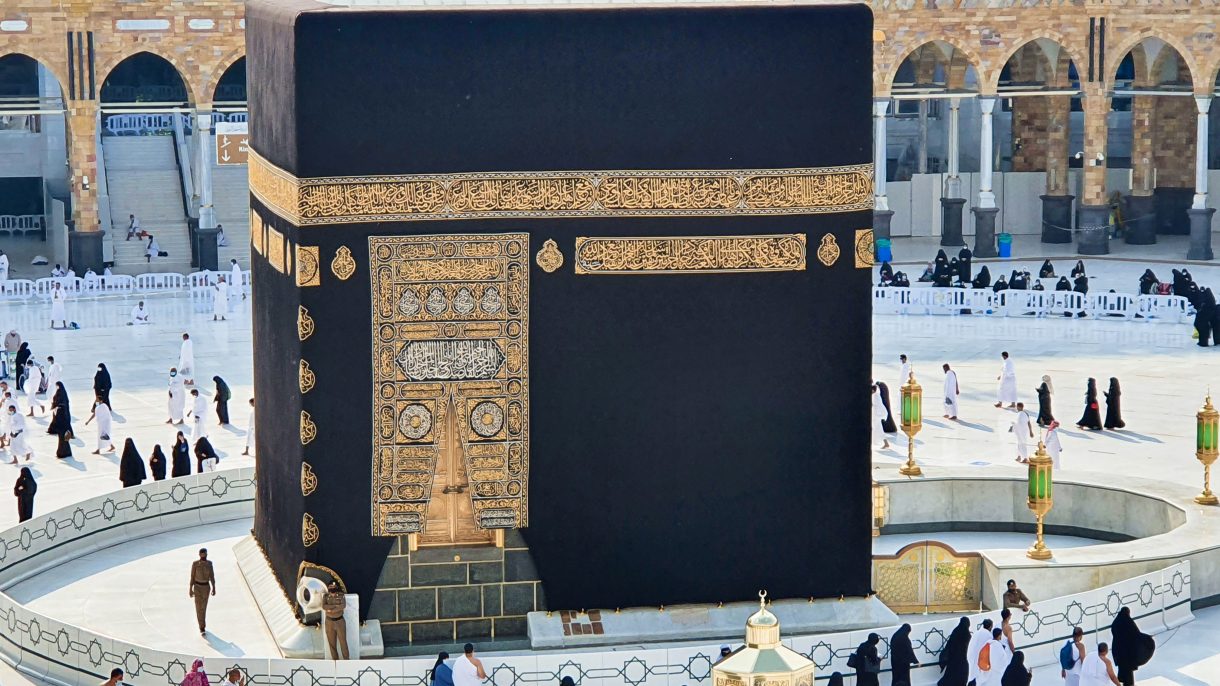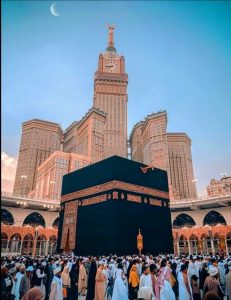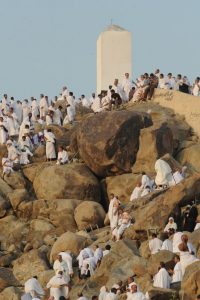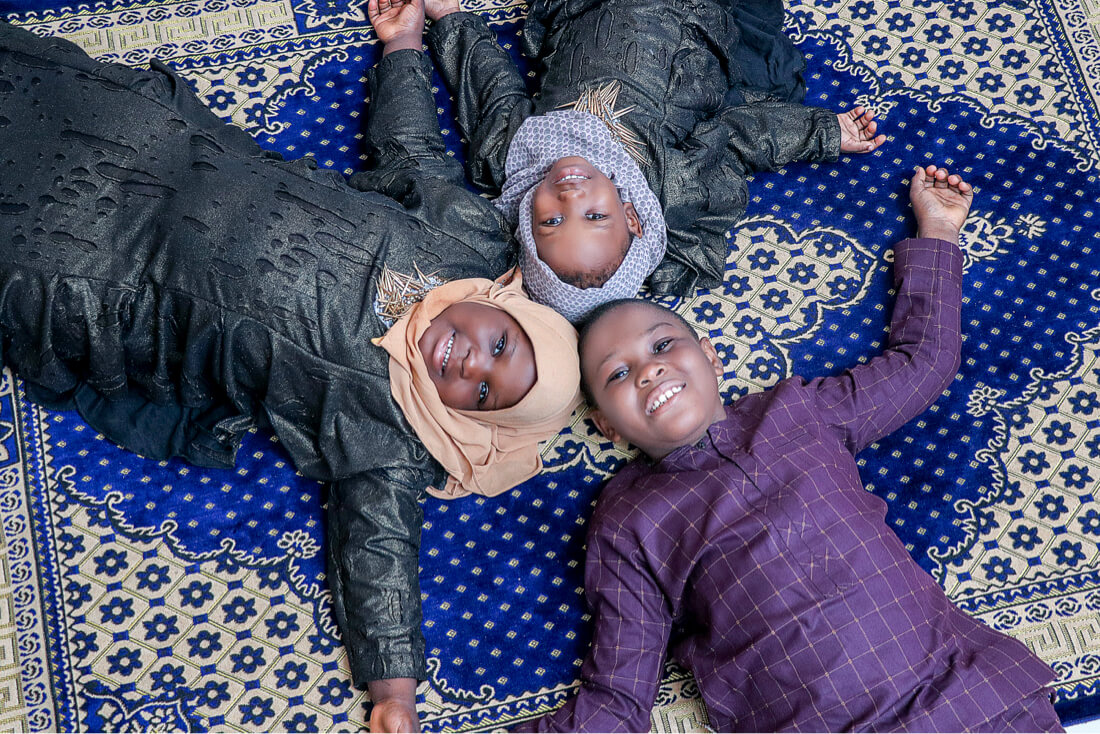
WHAT IS HAJJ?
Hajj is one of the five pillars of Islam, the fifth of them which takes place during the month of Dhul Hijjah, the twelfth month of The Islamic Calendar. It is a sacred journey made by Muslims to the House of Allah( Masjid-al-Haram) in Makkah, Saudi Arabia. It is a spiritual duty which involves several worship processes which are done according to the injunctions of Allah (SWT) and the teachings of Prophet Muhammad (SAW).
This final pillar of Islam is obligatory, at least once in a lifetime, upon all sane Muslims, who reach the age of puberty, and are physically and financially able. In recent times, many Muslims have observed Hajj through sponsorships, award, etc, however, it is a form of worship that requires not only financial and physical abilities, but emotional and social sacrifices.
In the Holy Qur’an, Allah (SWT) commands us to take this sacred journey:
“… And Hajj (pilgrimage to Makkah) to the House (Ka‘bah) is a duty that mankind owes to Allah, those who can afford the expenses (for conveyance, provision and residence); and whoever disbelieves (i.e. denies Hajj, then he is a disbeliever of Allah), then Allah stands not in need of any of the ‘Alâmin (mankind and jinn).”(Qur’an 3:97)
Muslims who go for Hajj sacrifice the pleasure of being with their families, social gatherings or family functions, and work or career obligations throughout the entire period. For many people, undertaking this pilgrimage is once in a life time. It’s definitely an unforgettable experience!
 SIGNIFICANCE OF HAJJ
The main significance of Hajj is for personality development. The Prophet had explained to his Companions that the various rites of Hajj were a kind of symbolic repetition of the different phases of the life of the Prophet Ibrahim (AS). Every believer is required to adopt this life pattern in personal life. Some Hajj activities and their indications;
SIGNIFICANCE OF HAJJ
The main significance of Hajj is for personality development. The Prophet had explained to his Companions that the various rites of Hajj were a kind of symbolic repetition of the different phases of the life of the Prophet Ibrahim (AS). Every believer is required to adopt this life pattern in personal life. Some Hajj activities and their indications;
 THE REWARD FOR HAJJ
Hajj offers its observers the opportunity to refresh their spiritual self, cleanse themselves of their sins and renew their faith. The following are some of the many reward for Hajj:
THE REWARD FOR HAJJ
Hajj offers its observers the opportunity to refresh their spiritual self, cleanse themselves of their sins and renew their faith. The following are some of the many reward for Hajj:
 SIGNIFICANCE OF HAJJ
The main significance of Hajj is for personality development. The Prophet had explained to his Companions that the various rites of Hajj were a kind of symbolic repetition of the different phases of the life of the Prophet Ibrahim (AS). Every believer is required to adopt this life pattern in personal life. Some Hajj activities and their indications;
SIGNIFICANCE OF HAJJ
The main significance of Hajj is for personality development. The Prophet had explained to his Companions that the various rites of Hajj were a kind of symbolic repetition of the different phases of the life of the Prophet Ibrahim (AS). Every believer is required to adopt this life pattern in personal life. Some Hajj activities and their indications;
- Ihram—the attire of the pilgrim comprising two unstitched pieces of cloth is a symbol of simplicity.
- Tawaf, which involves circumambulating the Ka’abah seven times, indicates dedicating oneself for a purpose.
- Saee that is, running or walking seven times between the hills of Safa and Marwah, located near the Ka’abah. Saee encourages one to direct one’s efforts and struggles towards drawing in nearness to Allah.
- The pilgrim’s sacrifice of the animal is a way of taking the pledge to lead a life of sacrifice.
- Stoning of the devil, known as Ramy Al-Jamarat, is symbolic of rejecting satanic influence on oneself.
- Lastly, the pilgrims enter the plains of Arafah with the words “Labbayk Allahumma, Labbayk” (Doubly at Your service oh Allah! Doubly at Your service!). This is meant to remind one of the Day of Resurrection when every human being will have to stand before Allah for accountability.
 THE REWARD FOR HAJJ
Hajj offers its observers the opportunity to refresh their spiritual self, cleanse themselves of their sins and renew their faith. The following are some of the many reward for Hajj:
THE REWARD FOR HAJJ
Hajj offers its observers the opportunity to refresh their spiritual self, cleanse themselves of their sins and renew their faith. The following are some of the many reward for Hajj:
- Forgiveness of Sins- When we perform the Hajj rites properly we attain tremendous rewards. One of which is Allah’s forgiveness of all our past sins. This means our eternal happiness and success in Paradise. In the following authentic Ahadith we learn the following very inspiring teachings from the Prophet (SAW):
- Paradise- From the above Ahadith we learn that the everlasting reward for Hajj is Paradise, a life that is full of peace, happiness and prosperity. This is because in Hajj mabrur, we perform nothing but deeds of righteousness – deeds that deserve Allah’s Reward of Paradise to all righteous Muslim men and women. Our Creator makes this clear to us when He says:
- Acceptance of Supplications- Another beautiful reward for performing Hajj is the acceptance of our supplications. If we ask for Allah’s forgiveness, He, the Most Forgiving responds to our prayer as narrated in the following Hadith:
- Patience- Another positive attribute that we develop in the performance of Hajj is patience. We develop patience not only in the performance of the various Hajj rituals but also in remembering how Prophet Ibrahim and his family sacrificed in building the Ka’bah, the first Holy House of Allah. The patience that Hajar ( Prophet Ibrahim’s wife) had was an unrivalled one. She went with her husband to a barren land as commanded by Allah, with no food, no water and no people around? How much patience and endurance can one afford for the sake of pleasing The Rabb? Just how many of us could pass the test that Prophet Ibrahim had when Allah the Almighty commanded him to sacrifice his own son?
[learn_press_profile]





